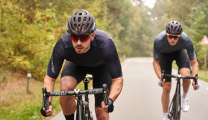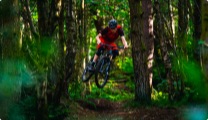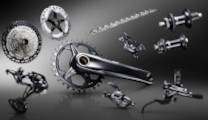Bicycles have long been a part of Taylor Lideen’s life, and he's had no shortage of accomplishments along the way: Under-25 World Solo 24-Hour MTB Champ, winner of the Unbound XL 350 miler, a four-time champ of the True Grit 100, and the list goes on. But it's been a long road from his hometown South Mountain trails in Phoenix, Arizona, to his pro career and the LifeTime Grand Prix. Relishing the process and building momentum each year, Lideen has developed his riding while understanding more about himself with every pedal stroke along the way.
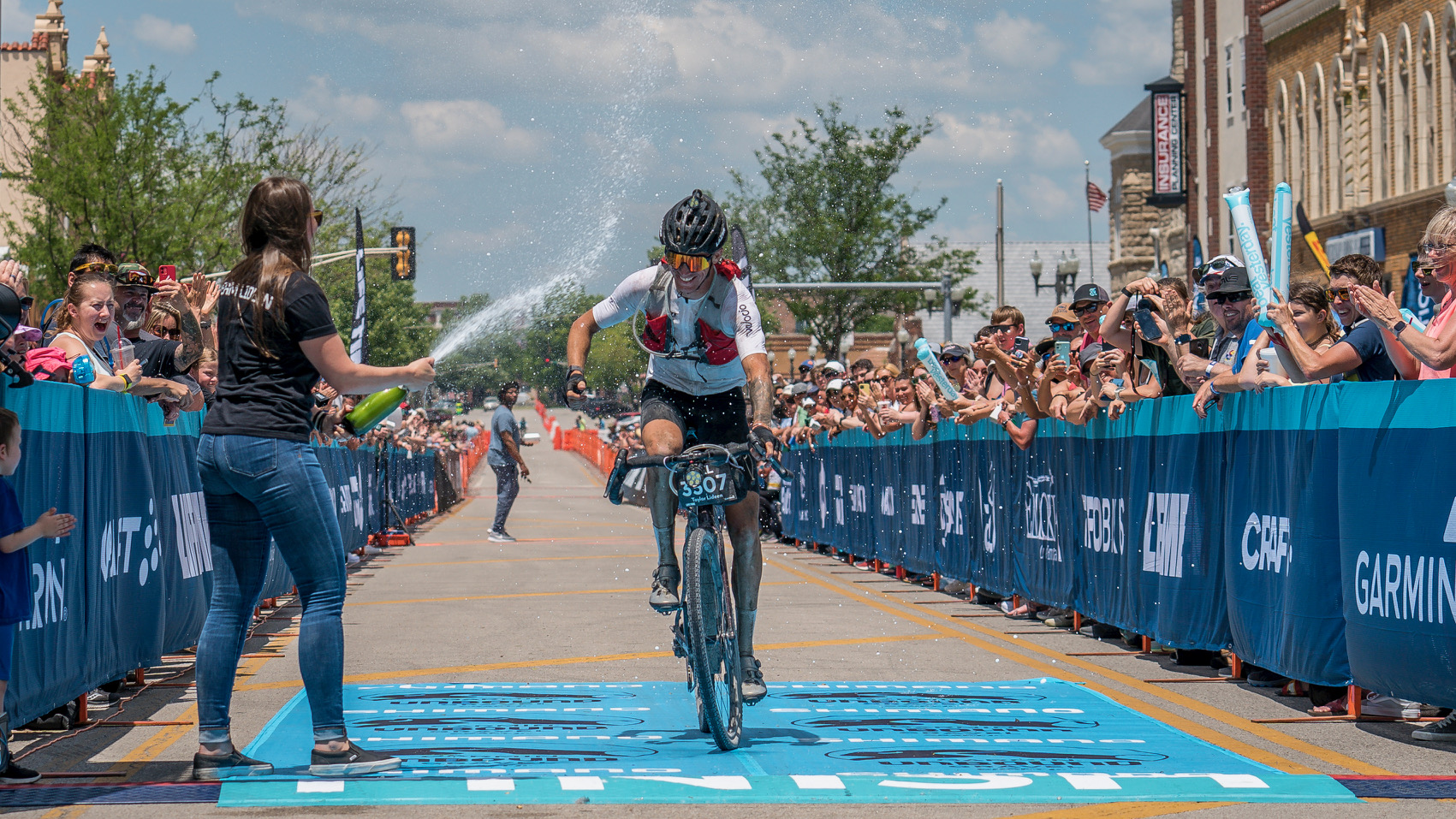
How did you get your start riding and racing?
I grew up riding and racing mounting bikes with my dad for as long as I can remember. I took to a bike like any other kid does when you're young–your parents take the training wheels off and then they can't bring you inside because you're just on your bike outside all day. Up until high school, I was into playing hockey and riding motocross, but it was difficult because all the tracks and places to ride were at least a 45-minute drive.
My dad kept telling me, “Hey, you should really think about riding mountain bikes.” We lived in Phoenix, Arizona. South Mountain was in our backyard and he was riding nearly every day. I pushed it off and pushed it off – I thought it was his thing, not my thing. But finally, in high school, he dragged me out for a ride, and I was hooked immediately. From that first mountain bike ride, I thought, "This is probably the coolest thing in the world."
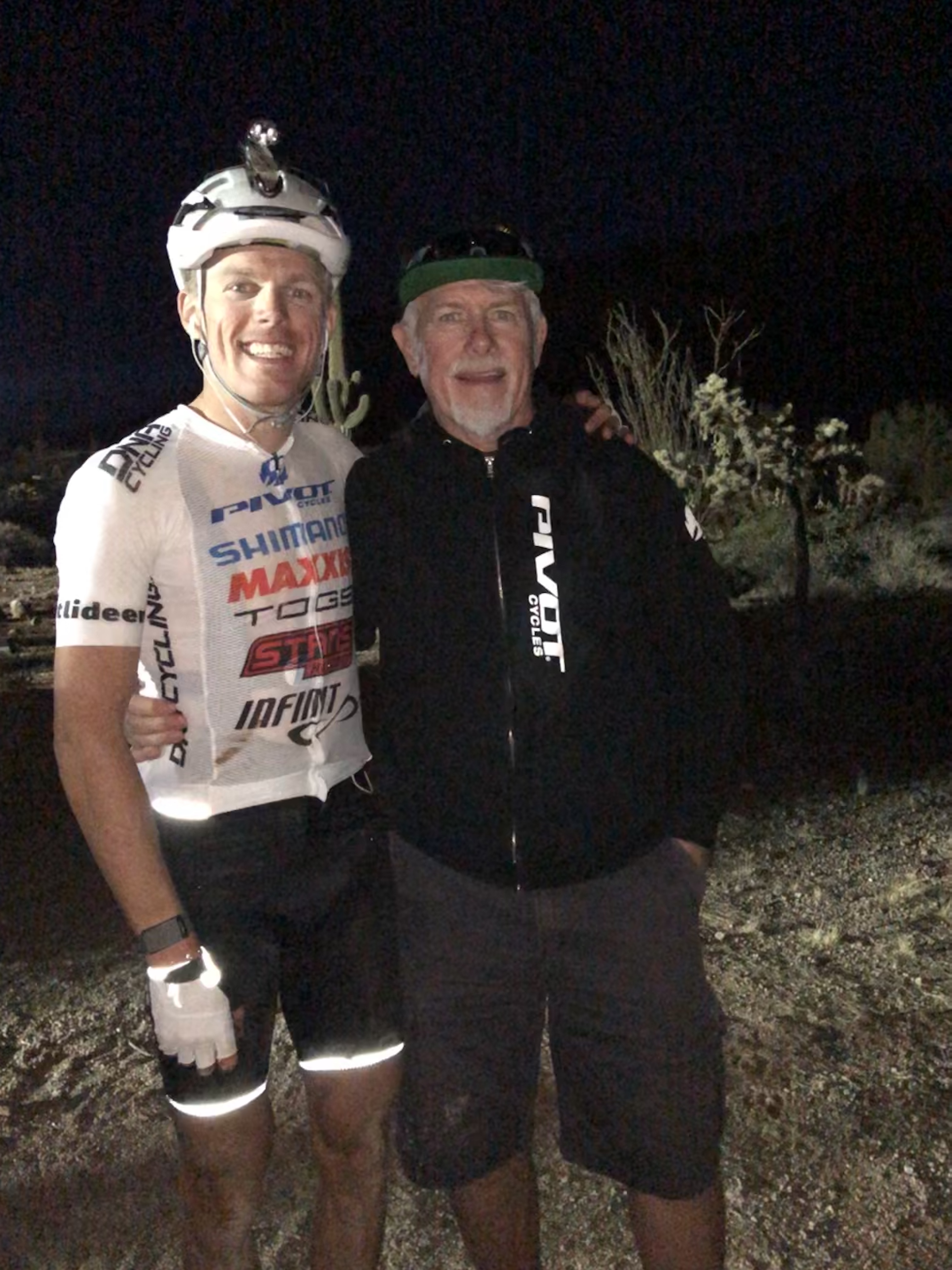
What did you enjoy most about riding then? What was it that gave you that instant feeling?
When I was off high school, I could go explore South Mountain, which at one point was the largest municipal park in the world. I would just go out and ride trails that I'd never seen. I think the one thing my dad wanted me to do was to go out there and be self-sufficient: pack enough water, pack enough food, learn how to fix flats, and learn how to fix mechanicals on my own.
At the time, my dad was racing 24-hour mountain bike races on a team, and then he transitioned to racing downhill. So when I first started racing mountain bikes, I was racing downhill. We'd travel around the country and that transitioned into Enduro races while also doing some endurance stuff. During that whole time, I struggled with a lot of health issues, and I struggled with anxiety and depression from a really young age. But it didn't start to come heavily into my life until high school and after. So I dealt with that for quite some time, and that was throwing wrenches into focusing on the bike as much as I wanted to.
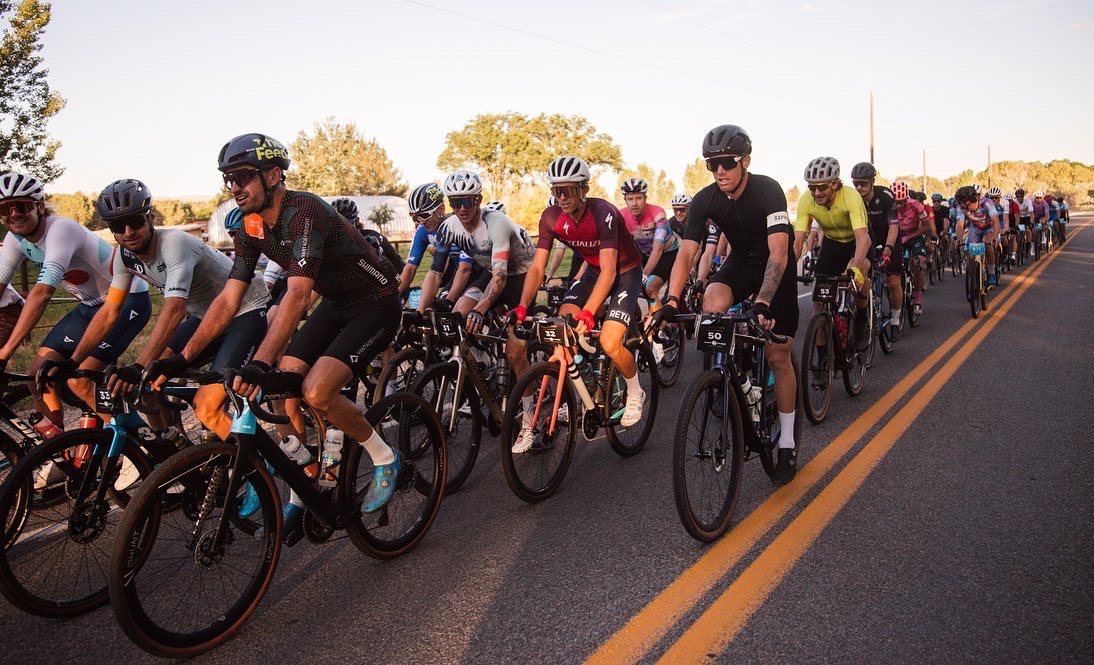
But fast forward to 2015, my now wife and I moved to Colorado to try something new. While there, I got heavily into the endurance aspect of mountain biking, and that's been my focus since. We lived in Colorado for a year before moving back to Phoenix, and then just recently, my wife and I relocated to Northwest Arkansas, the Bentonville area. We really only knew Phoenix our entire lives. And like most places in the country, Phoenix was getting crazy expensive in terms of living there. We had looked and looked, trying to buy our first home, and as first-time home buyers, it was beyond our reach in Phoenix. So we looked over a big map and had a bunch of places picked out and started looking in Arkansas.
We moved here in November of 2021, and it’s the best decision we’ve ever made. How friendly everybody is, basically how Bentonville and Bella Vista have incorporated bicycles into the culture here. There are bike paths everywhere, and you can access singletrack pretty much from anywhere in town. And I would argue that the gravel riding in NWA and southern Missouri is the same if not even better than the mountain biking.
What point did you decide that it was possible to make cycling a career?
Really only within the last two years. In all honesty, I was very hesitant to do so. Like I said, I’ve dealt with some pretty extreme anxiety and depression my whole life, and that has gotten the best of me in many cases and in many scenarios. It’s definitely impacted my cycling. Since I've gotten older, I've realized that anxiety and depression are scary, but I can seek help for it and not be totally brought to my knees. Working through that showed me that once I could get it under control, I could have a say in what I could do. That's what I've really realized in the last year or two.
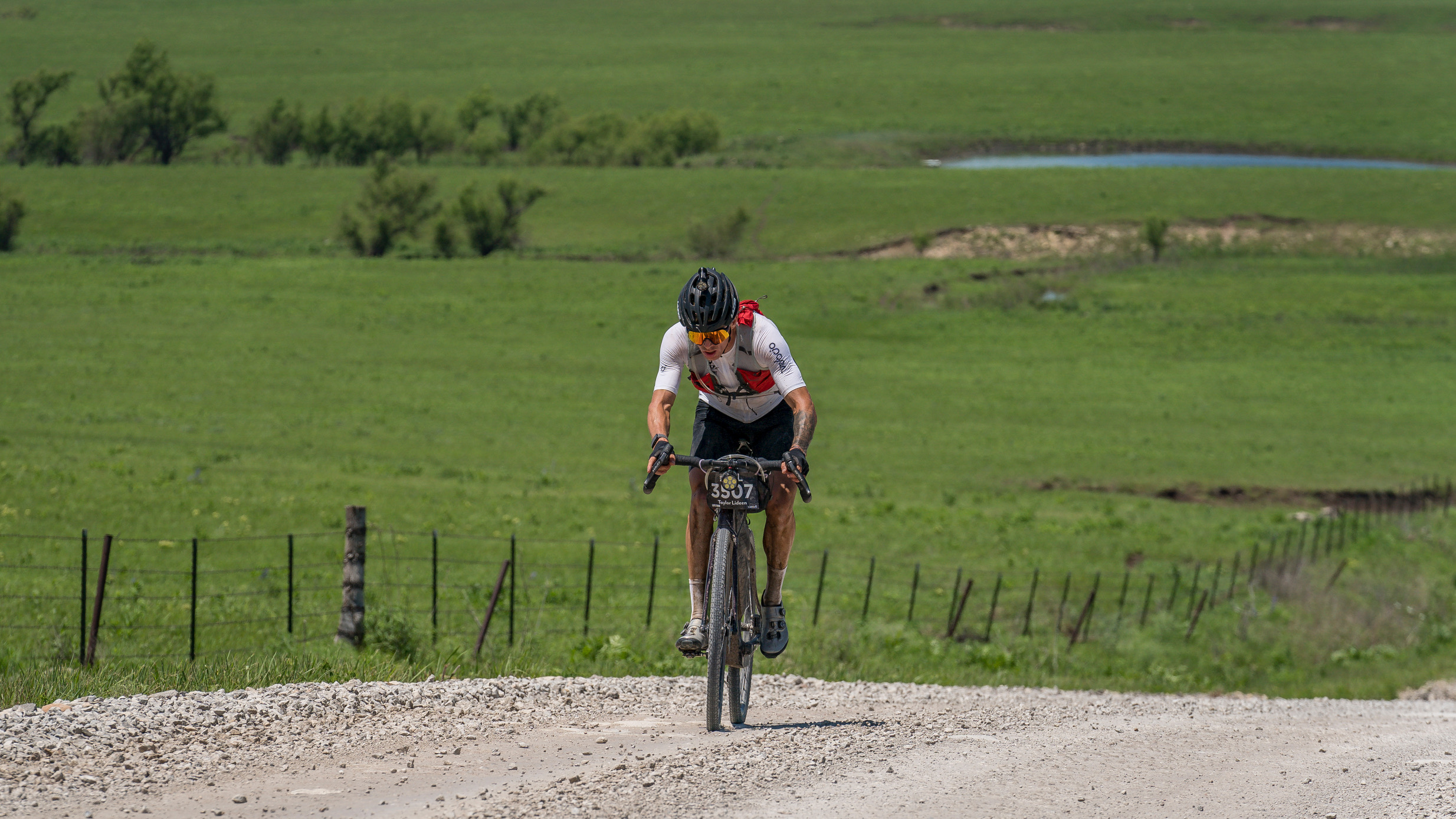
What a great epiphany to come to and to free yourself up, to explore a path that is something you really love and make it into your full-time job.
For sure, I feel very, very fortunate. I also think the move opened some opportunities as well that otherwise wouldn't have been there. I mean the cycling culture in Phoenix is good, but a city that large dilutes things with that many people. Coming to Arkansas felt like this new opportunity and possibility, and being submerged in this culture that's so cycling-focused really opened up opportunities. It just felt fresh.
Is cycling a positive feedback loop for you? Does it help you deal with anxiety and depression and work through it?
Yeah, now it does for sure. In the past, I thought it did when it, in fact, made it worse. Just like everything, as you get older, you figure out ways to work through different things and get through it. For me, that happened with cycling and happened relatively recently. That's the thing I go back to. For me, it sounds corny, but it's the only form of meditation that I know how to do. I'm jealous of people who say they can meditate in the mornings. I've never been that type of person. But the bike is always that constant. Whether you're going for a short ride through the neighborhood or for a long training ride, the bike is always there.
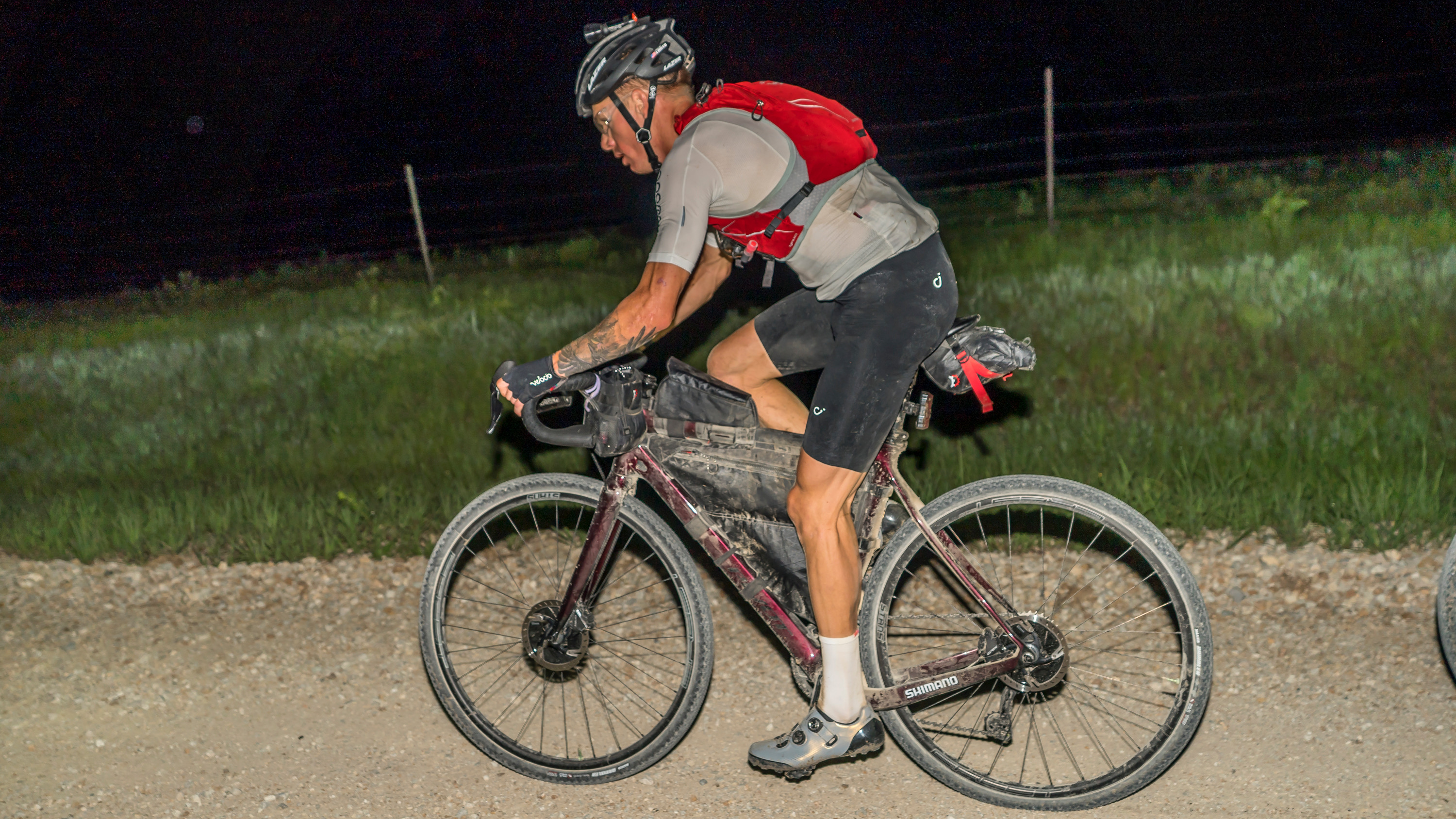
It kind of focuses your mind in a way or allows you to be more present?
For sure. When you’re on your bike, you’re really focused on turning the pedals and drinking and eating. It kind of simplifies things. When we live in a world now where everyone is go, go, go all the time…when you get out there on the bike, when you know where you’re going, it really simplifies things.
Is that presence and that mindfulness something that you enjoy about 24-hour and long racing?
I would say that plays a huge role but also just the process for me. I love any bike event, really. I love the process before, during, and after. I love the logistics, the planning for nutrition, mechanical planning, the physical and mental training. It's like the checkboxes in the daily routine. When you have an event on the calendar, there are certain boxes to check along the way, and that date's going to come and go whether you're ready or not. It's all up to you to figure those things out.
Is there a particular feeling you enjoy throughout an event's whole cycle from prep to race day and beyond?
I like knowing that you can build your own momentum, in a single day, in a single week, in a single month. You really don’t need anybody else to build that momentum for you. That’s not to say that I do it by myself. I’m very fortunate to have support and my wife and my family and sponsors and help. Things can’t be done without those pieces of the puzzle, right? But building that momentum and feeling it is something that I love.
The momentum of the process is a cool way to think of training and racing.
When I say that anybody can do this, I mean it. It's like if you start a new job–the first couple weeks feel super intimidating, but sure enough, after a month, you start to get the hang of it and before you know it, you're in this routine and it feels like second nature. You're on a roll.
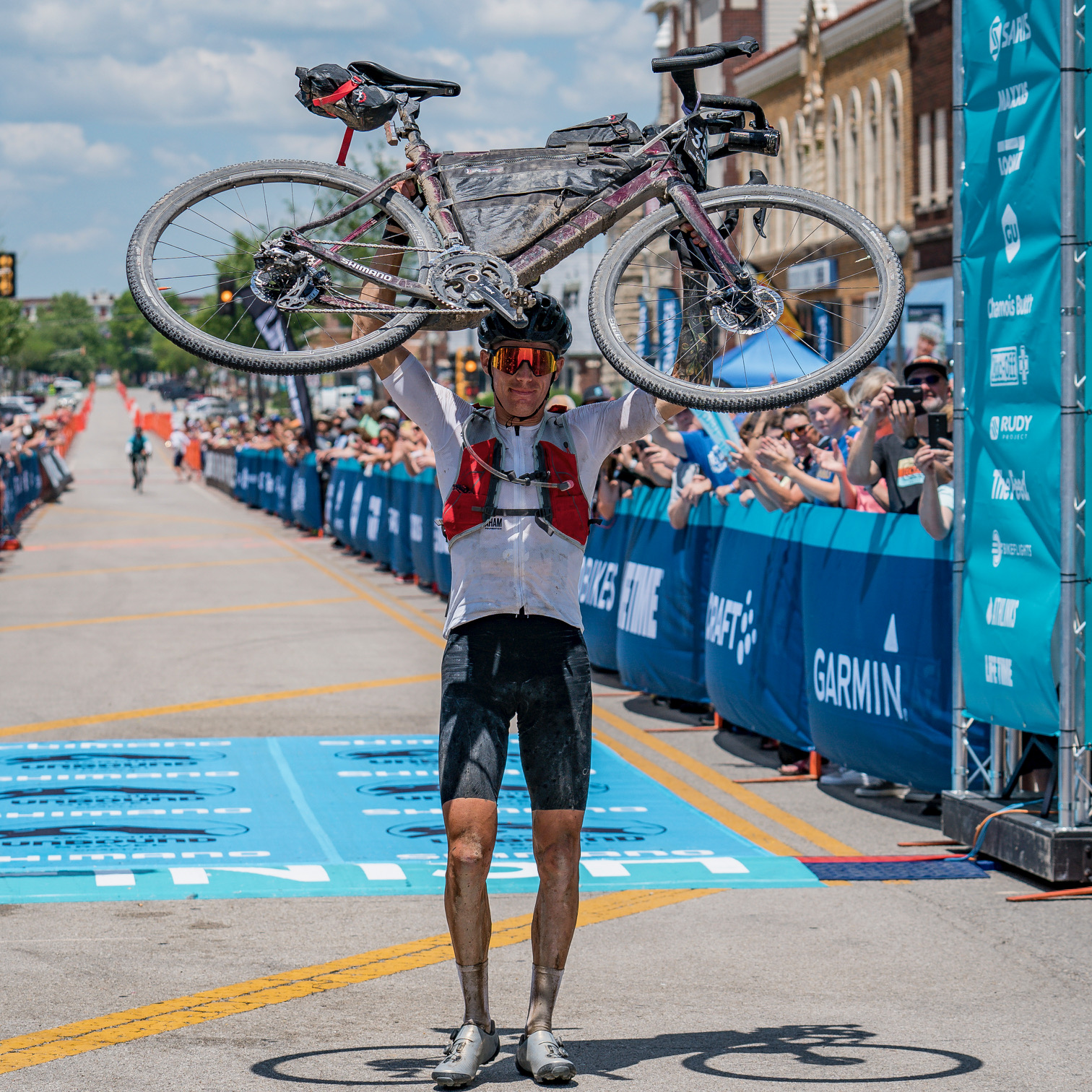
There's a pretty big spread of what you do, from 24-hour MTB races and 350-mile gravel events to shorter Lifetime Grand Prix races. Do you get that momentum from preparing for events, regardless of what they are?
Yeah, I think so. For me, the longer events are more rewarding personally because I'm naturally geared toward the longer races. Whereas some of the events in the LTGP, for me, feel like a sprint. That stuff is incredibly intimidating for me and it's scary for sure. It's something I'm not really all that used to. At the same time, it brings this excitement of going outside my comfort zone and learning something, and that momentum can carry into next year.
Are you enjoying shorter endurance events, relative to what you normally specialize in?
Honestly, any type of bike racing, I love it all. It’s really fun doing things like Sea Otter, which was a bit short for me [at 80 km]. I’ve done plenty of those in the past, but since it’s not my normal focus, it’s fresh. It’s exciting because the pace is much higher than what I’m used to.
Are you the kind of person that likes to go back and do the same event over and over, or do you get more of a charge out of going somewhere new and racing a new course or a new discipline?
There are certain events that I love doing year in and year out, but I definitely love going to new places to not only ride but race as well. That’s what’s so exciting about this LifeTime Grand Prix. One of the events is in Wisconsin, and I've never even been there. That's exciting for me to go to a state I've never been to, and a bonus to then throw a bike race in there too.
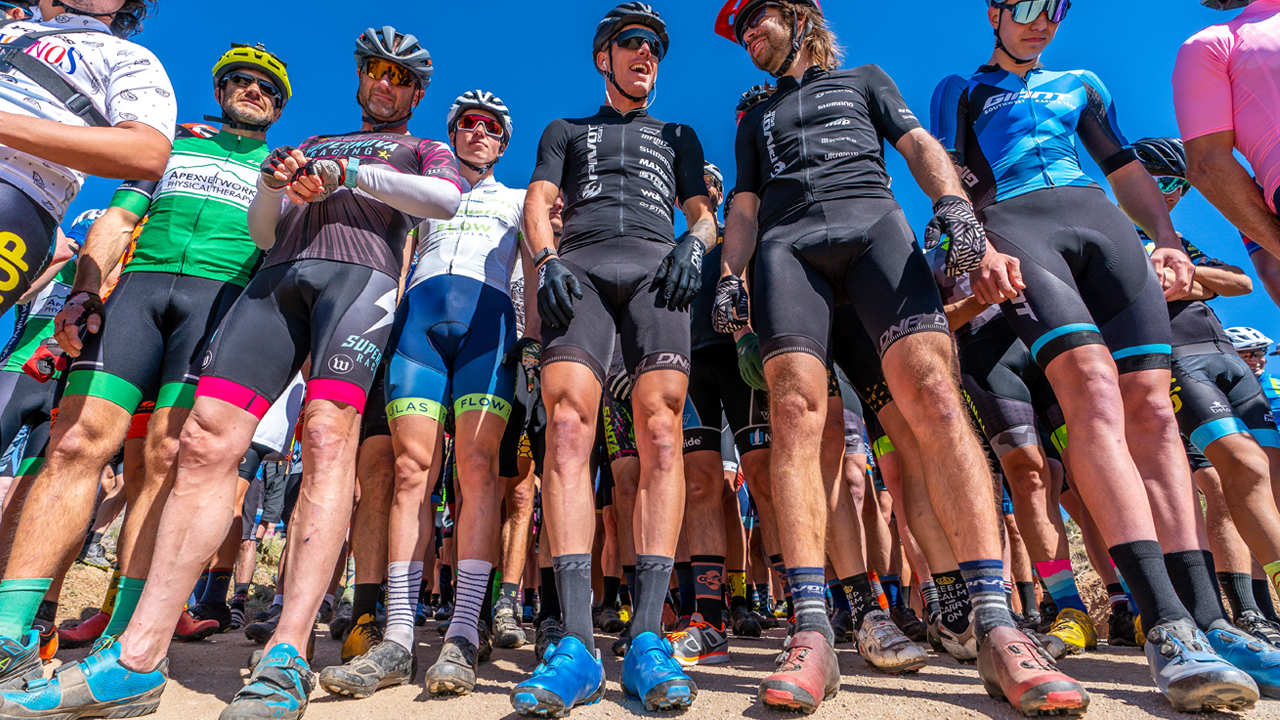
Is that what you’re looking forward to the most for the rest of the LTGP, traveling to these new places and races?
That definitely plays a role. The thing I look forward to most is trying to be as competitive as I possibly can. That drives me every day. I'm so driven in fact that I'm living in Colorado for two months this summer, just to get solid time at altitude. An opportunity came up where I found this little dorm room for rent up by Vail.
That sounds dreamy, just living up the mountain for the summer and your job is to just ride your bike and enjoy it!
For sure. It’s definitely not the most glamorous little dorm room–it’s 11 x 13 feet, and I rented a storage closet for bikes and spare stuff. But I’m super excited just to change things up a little this summer.
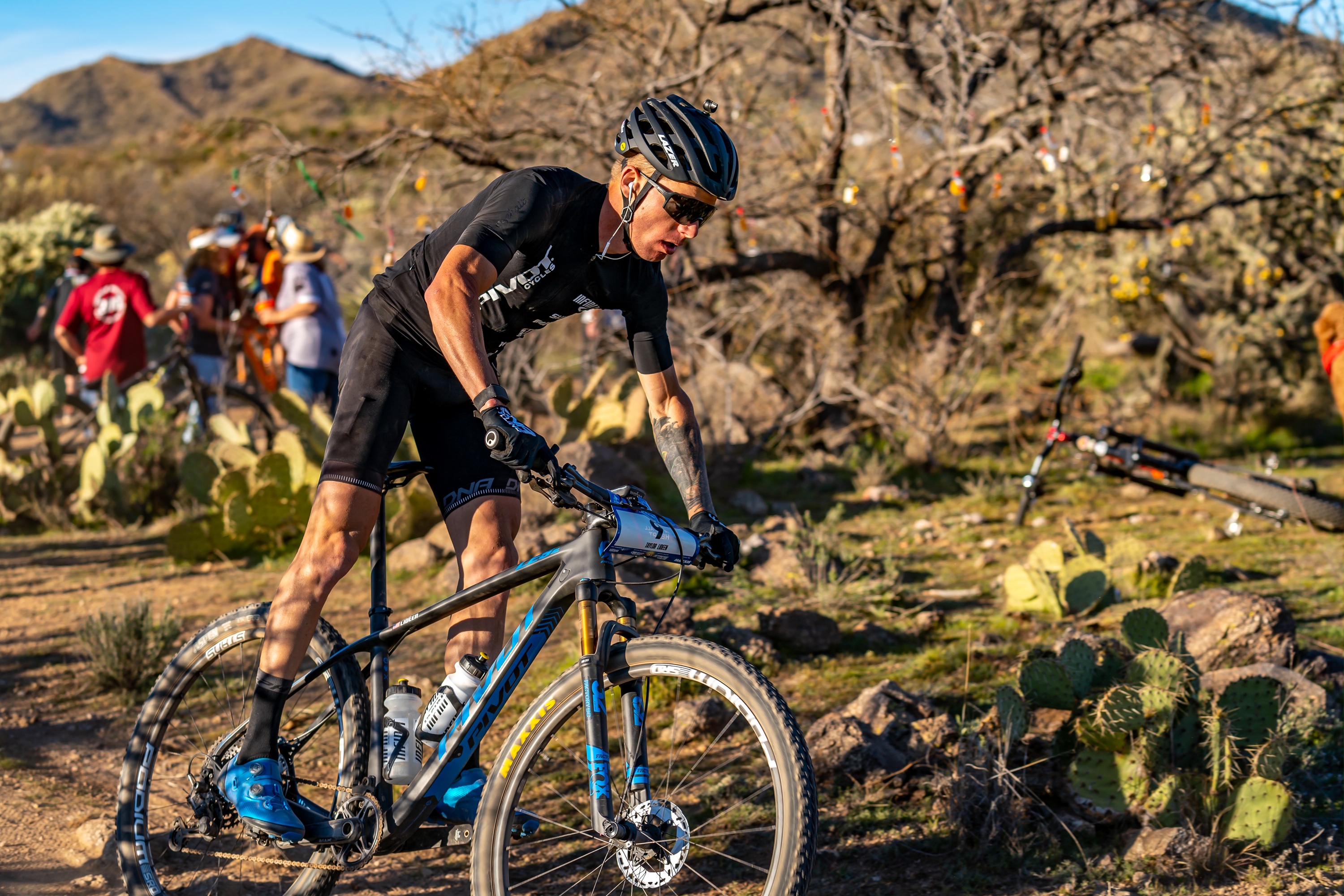
When you’re not riding, what do you like to do? What makes you happy?
My wife and I have two Dutch Shepherds, and they're like our kids. We spend a lot of time with our two dogs. Because we just moved to a new place, we are doing a lot of stuff around the house too. There's also so much opportunity to do fun things here in Northwest Arkansas when I'm not out riding. There are plenty of museums here like Crystal Bridges. Plenty of lakes to take the dogs to. Plenty of rivers and swimming holes. I spend a lot of time watching sports and listening to music. Outside of cycling and spending time with my wife and two dogs, those are the two things I'm most passionate about.
Do you have a certain band or type of music that you really like?
I listen to anything and everything. I probably listen to metal the most. Then Southern Country Rock second most.
What would you be in the mood to listen to right now?
I’ve been on an older punk kick lately. Really the only type of music I don’t listen to is Radio Country and R&B. I’ll really listen to almost anything. There’s so much out there to explore. But, I would say that Tool is probably my favorite band. I always go back to them. I’ll go months listening to them.
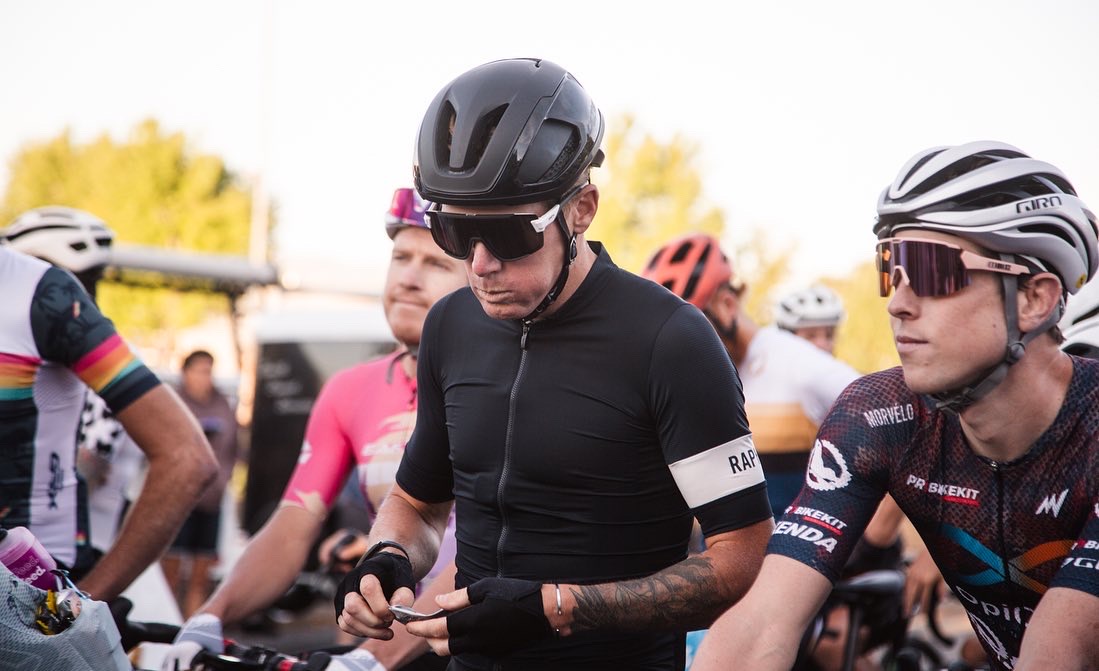
At bike races, it doesn’t seem like there’s an age limit for when people stop going and stop enjoying the events. Do you see a point in your life when you’ll ever stop racing or riding?
I think that’s what's so cool about riding and about the sport, especially these mass participation events. You can see everybody there. Whether it’s mountain bike or gravel, you can see somebody doing their first event regardless of their age. Then, you have people who are at the pointy end of the race who have been doing it at a very high level for a long time.
I use my dad as an example. He's been riding for as long as I can remember, but he still rides four days a week on South Mountain in Phoenix. He's almost 70, and he still does it almost every day. He's not slowing down anytime soon. He may take a little more time to recover, but he loves it just as much as the day he started doing it.
I think there are also so many more kids getting into it, because regardless if you want to race or not, you can do it till old age, and you can also do it with your family, which is very cool.
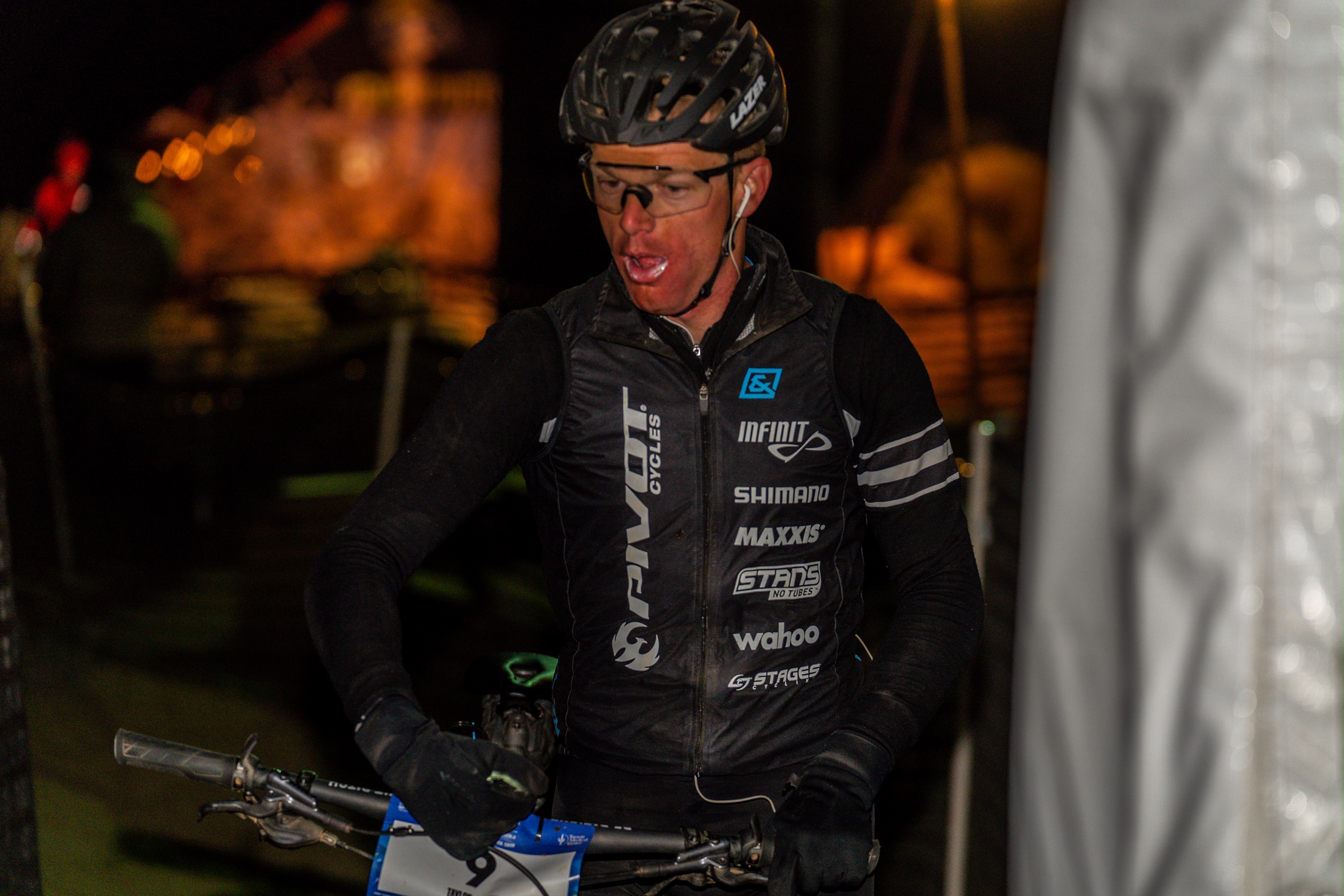
Your dad got you into riding and he’s still enjoying it. Would you say that he’s your inspiration?
In some ways for sure. I look up to him because of what he's done in the past and how he's done it his way from the time he started riding until now. He's almost 70. That's the other cool thing about the sport. You don't have to do it a certain way or the way somebody tells you. You can do it your own way.
So it’s up to you, each individual, to enjoy it the way that you like it most?
So many people will ask for tips or pointers when they are just getting into it, and I think the biggest thing is to find what works for you. Find what makes it fun for you. Don't get caught up in what other people are doing. You don't have to go out and spend a bunch of money to get started. If you have a bike in your garage, just start by going around the block. Ride bike paths. I think a lot of people are sometimes on the internet too much and seeing too much of what other people are doing. That can be intimidating to get into the sport. Find your own way and ask for help along the way. People will be willing to help.
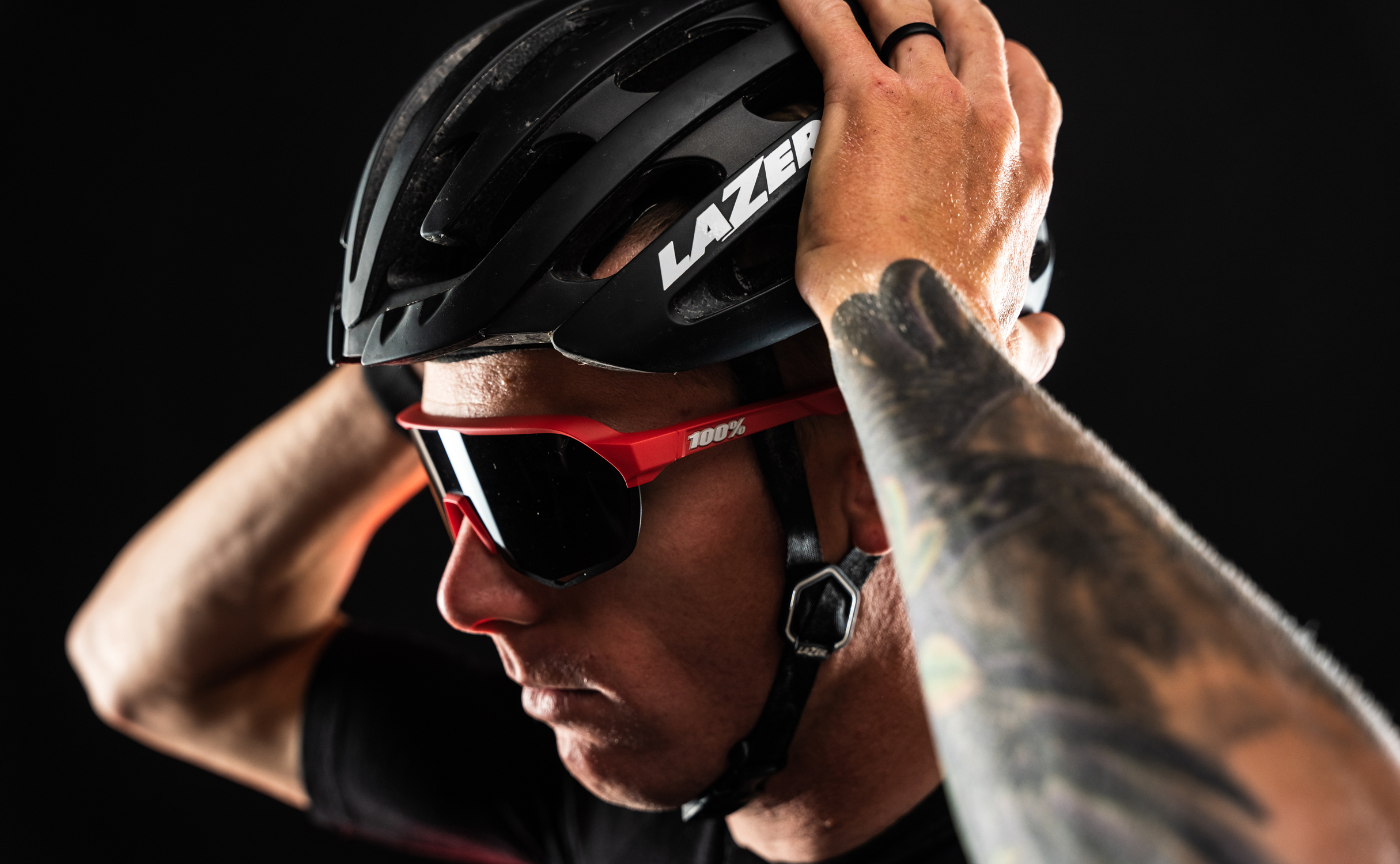
What mark do you hope to leave on the sport? What do you hope kids watching you, on the sharp end of a race, take away from your example and actions?
Recently, I've been a little more open about my struggles with anxiety and depression and how that relates to sport in general. I think we live in a world now where it's more commonplace for people to talk about the struggles that they might be going through. It doesn't have to be anxiety and depression specifically, but other things that people are facing. And I hope that dialogue can open up and becomes second nature to talk about, so long as people are comfortable with it. I think especially with the youth–if they are struggling with something and are using the bike as some kind of therapy, don’t be scared to open up about it if you’re willing to.
I learned that when I did, there were so many more helping hands than I could have ever imagined. It was really terrifying to do that at the beginning, but I couldn’t be more grateful for where it’s gotten me. It also allowed me to connect with people that I wouldn’t otherwise have connected with.
So, you want people to be able to have the same positive, healing experience from opening up that you were able to have?
Absolutely. I feel very fortunate to have gotten help and been able to continue getting help. I do realize that there are people out there who aren’t getting the support or who can’t currently. But that doesn’t mean it’s not out there.
